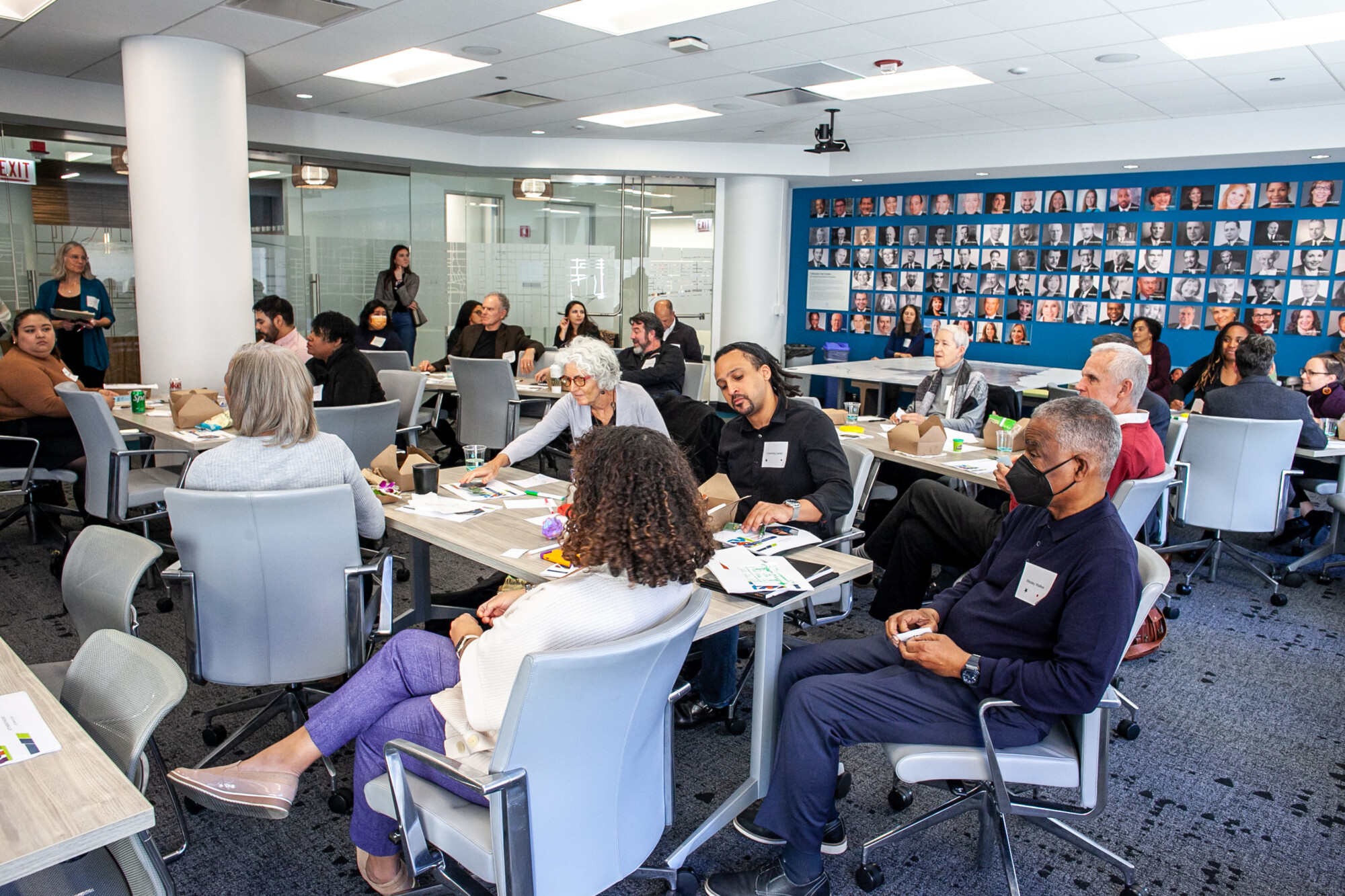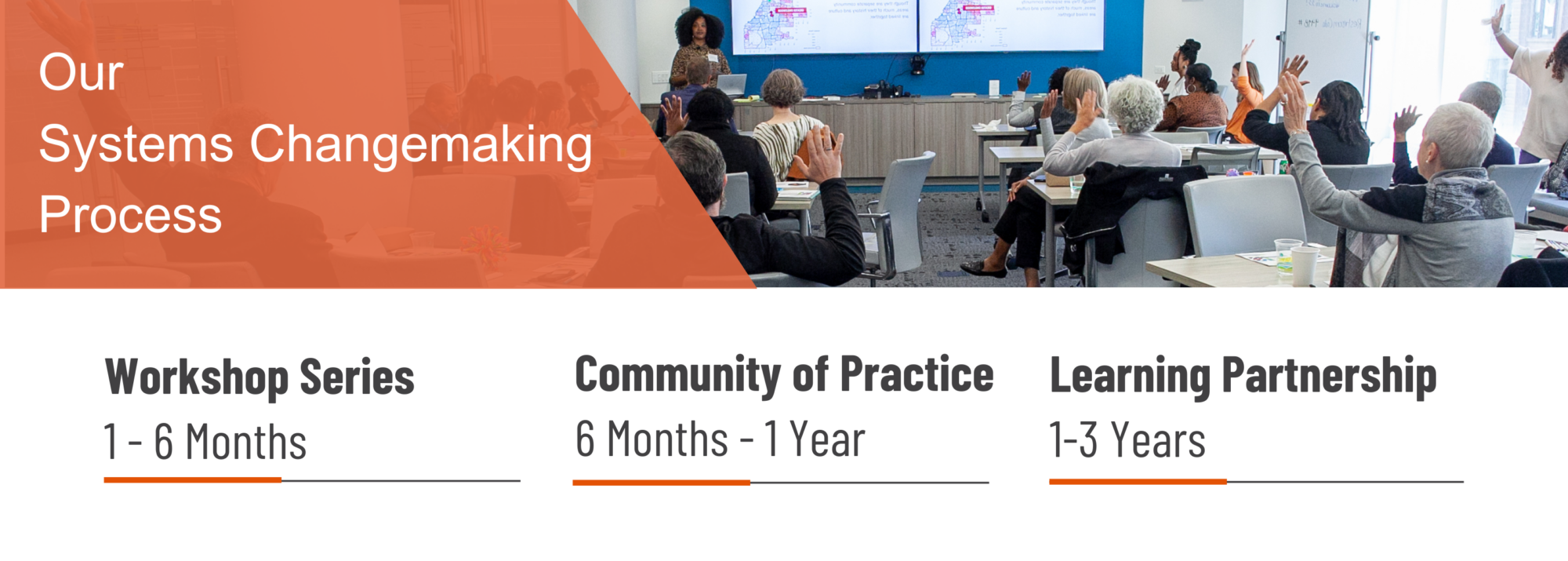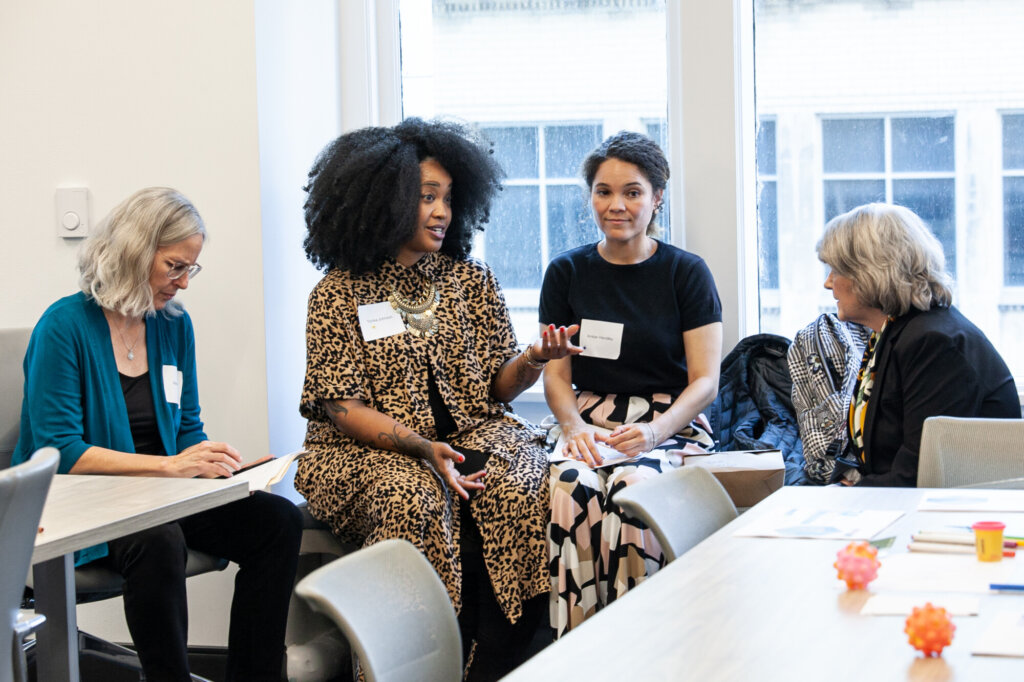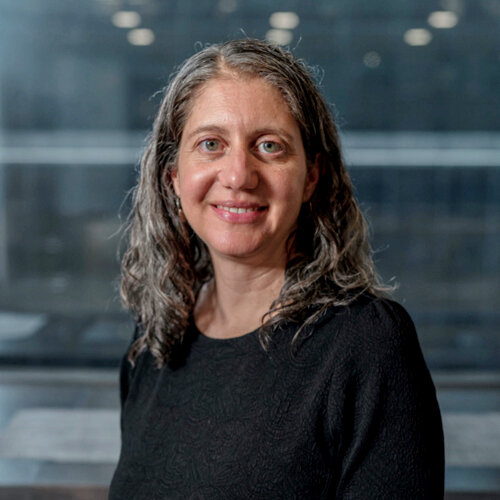Change Lab
Our region is changing, yet racial and economic inequities persist. Change Lab, MPC’s learning laboratory, offers a systems solution.

Change Lab equips advocates, the public sector, and private entities with the knowledge, skills and tools to affect structural change and institutionalize equity.
Government, private sector, and civic partners have made significant progress in advancing equitable practices and policies in cities. Yet after legislation has passed or a practice has been proposed, there is a need to better coordinate and implement these systems change efforts.
Our partners often come to us with these challenges:
- How can we better understand our roles in systems and do our work differently so that our systems function differently?
- How can we share decision-making power and co-create solutions with stakeholders?
- How can we re-design systems to be equitable using creative approaches?
Change Lab equips government, private sector and civic partners with the knowledge, skills, and tools to affect structural change and institutionalize equity.
- Curiosity: We let curiosity guide the learning process and embrace new ideas and others’ experiences.
- Creativity: We are imaginative and innovative in thinking and doing.
- Trust: We believe change happens at the speed of relationships and relationships move at the speed of trust.
- Collaboration: We share decision-making power and co-create solutions with those most impacted by a policy or process.
- Reflection: We encourage reflecting personally and professionally to guide future actions.
- Risk-taking: We embrace being open and pushing toward risk-taking to disrupt harmful systems.
- Equity: We acknowledge the harm that discrimination and racism have caused and continue to pose to our lives and neighborhoods. We believe that every individual and community in our region should have the opportunities they need to thrive. We seek to develop new systems of collaboration and accountability and to drive policies, investments and ideas that ensure all current and future residents can reach their full potential.
Our approach is focused on better coordinating policy, process and culture change.
- Understanding our role in systems: Increasing awareness of how you are part of the systems that you are trying to organize to change and how to shift your role
- Collaboration: Building relationships and sharing decision-making power to co-create solutions
- Experimentation: Trying out creative approaches to disrupt systemic issues
We offer three pathways to engage the Systems Changemaking curriculum of Change Lab.

- A Workshop Series:
Learn over 1-6 months with facilitated discussions and hands-on tools for partners to learn about structural inequities - A Community of Practice:
Learn + Co-Create over 6 months – 1 year with a space for partners to learn from and collaborate with each other to co-create solutions - A Learning Partnership:
Learn + Co-Create + Experiment over 1 – 3 years with a program for partners to learn, collaborate, and experiment with implementing solutions and leading institutional change through coaching, facilitation, and train-the trainer support.
Our curriculum pillars are systems thinking, collaboration and narrative & culture change.
Systems thinking
Systems thinking is the process of 1) recognizing our role and relationships to the systems we function in; and 2) understanding the interconnectedness of systemic root causes and structures of power
Collaboration
Collaboration is the process of sharing decision making power across and within organizations, communities, and sectors to make change.
Narrative and culture change
Narrative and culture change is the intentional effort to challenge assumptions and shift the stories and cultural norms that guide our values and shape how we make meaning of information and experiences in the built environment
Our Systems Changemaking Curriculum
One example of our workshop series is MPC’s Advancing Equity: Closing the Homeownership Gap series. This workshop series supports housing stakeholders to understand systemic forces that perpetuate segregation and that laid the foundation for the homeownership gap and the inequities that flow from it, with particular attention to Land Sale Contracts. In 2022, MPC in partnership with the Chicago Community Trust designed and facilitated this three-part conversation.
To unpack the legacy of structural racism and causes and consequences of segregation and its impact on the homeownership gap, it is essential to start with shared understanding of the issues. MPC’s original research, Cost of Segregation, outlined incredibly impactful analysis of how racial and economic segregation in the Chicago region produces negative impacts on quality of life, health, and access to employment for all. The Cost of Segregation has helped orient stakeholders in Chicago on policymaking approaches to address the needs of Black and Brown resident and low-income populations. There are encouraging signs that the housing stakeholders and policy makers have started to respond in more equitable ways. Despite this positive trajectory, there is a need for continued learning and engagement.
MPC designed a series of hands-on workshops to support housing leaders across various sectors to build the collaboration, experimentation and learning capabilities needed to address the racial homeownership gap. The topics included: understanding the systemic issues that perpetuate segregation and the homeownership gap; co-creating targeted solutions grounded in multiple stakeholders’ experiences and designing personal action plans around collaborative and disruptive solution building. The presenters included the Woodstock Institute, Folded Map and Chicago Bungalow Association. Over 50 housing practitioners representing developers, realtors, CBOs, residents, philanthropists, policy makers and banks participated in the forum. Read a full recap of the series here.
One example of our Community of Practice is MPC’s Advancing Innovative Homeownership Financing Solutions program. This Community of Practice trains a cohort of lenders and housing counselors on co-creating equitable lending products and addressing structural change in the lending industry. The participants are all recipients of the Chicago Community Trust’s Advancing Innovative Homeownership Financing Solutions Grant and their funding supports the planning and development of the products and their participation in this Community of Practice.
During the Advancing Equity: Closing the Homeownership Gap series that MPC facilitated from October 2022 to May 2023, we learned from housing stakeholders how the narrative that elevates homeownership as the answer to closing the racial wealth gap skews the structural problems of the homeownership system. Research presented from the Woodstock Institute shows how the systemic disadvantage and lack of intentional disruption prevents homeownership from generating the same type of wealth for Black people as it does for White people. It shows how we must reframe the racial wealth gap to focus on creating more effective solutions that transform the entire housing system and its relationship to equitable wealth creation. Through this Community of Practice, we build the capacity of housing leaders to create solutions that address structural change.
From August 2023 to June 2024, MPC is facilitating this Community of Practice through monthly workshops using our Change Lab Systems Changemaking curriculum for the Trust homeownership grant recipients. The topics include collaboration & power-sharing for a cohesive vision; understanding & influencing policy at local & state levels; and data & narrative change. This process will ensure the successful implementation of the grantee’s proposed lending products by addressing structural inequities in the lending industry.
One example of our learning partnership is MPC’s Change Team program. This learning partnership trains teams of government partners on operationalizing equity and supports them to develop a project that addresses structural inequities through project building and train-the-trainer workshops. The project development and implementation workshops focus on designing and building structural improvements through policy, process and culture change. The train-the-trainer workshops focus on developing facilitation skills and learning how to lead a change team.
In 2021, the Department of Housing began working to incorporate racial equity in its work with the Qualified REIA, updated mission, vision, and values, the Equity Learning Lab and deep dives, and its Racial Equity Action Plan. In order to help DOH build more equitable and collaborative practices, MPC began working more closely with the department to strengthen internal process, refining the approach in the spectrum of engagement and building capacity among staff to carry shared principles of equity and inclusion forward. MPC developed the Change Team with a vision that City staff can create the culture change needed to institutionalize equity. The goals of the program were to address an equity issue in two pilot bureaus: Construction and Compliance and Policy; to scale up change teams and apply learnings to departmental work; and to coordinate procedural, policy, and culture change
In the inaugural year of the program, MPC helped the Construction and Compliance and Policy teams identify an equity challenge and design a project to address it. The CAC team’s challenge was lack of access to DOH/DPD contracts for BIPOC construction firms. Their project was to create a pipeline that matches BIPOC contractors with technical assistance opportunities. The Policy team’s challenge was that DOH does not have an informed evaluation framework for program impact. Their project was to create an evaluation framework that uses quantitative and qualitative data to evaluate program outcomes from both an equity and efficacy lens. MPC facilitated nine workshops for the teams and trained them on user-centered design, while supporting their project development.
In year two of the program, MPC led workshops for the 2022 change teams to implement their solutions and create lasting equitable policy and culture change. MPC trained DPD/DOH operations staff on how to be facilitative leaders and lead a change team. MPC also co-led project workshops with the facilitators in trainings for a 2023 Home Improvement change team from DOH’s Bureau of Homeownership. The Home Improvement team’s challenge was that there is no coordinated intake process for homeowners interested in DOH home improvement programs. Their project was to streamline the intake process for home improvement programs and develop a program review process for operational efficiency and effectiveness. The facilitation trainings equipped the participants with the tools and skills needed to more effectively facilitate their department team meetings and the Change Team workshops.
Currently, MPC is continuing the Change Team program to provide the 2022 and 2023 DOH change teams with additional support to sustain the implementation work of the change team project and shift government culture to better align with the values identified in their change team mission statement. MPC is providing project implementation support for the two 2022 change teams and one 2023 change team and continuing to train a cohort of shared operations staff on how to lead a change team.

Chicago Community Trust’s meeting, Advancing Equity: Closing The Homeownership Gap. Photography by Eddie Quinones.Held at the Trust on October 26, 2022
How to work with us
Are you interested in how you can work with us and implement systems change?
We seek partners that:
- Align with our principles
- Are interested in learning about structural inequities and topics related to systems thinking, collaboration and narrative and culture change
- Willing and able to commit at least:
- 1 month if interested in Workshop Series
- 6 months if interested in Community of Practices
- 1 year if interested in Learning Partnerships
Contact the Change Lab team for more information.
